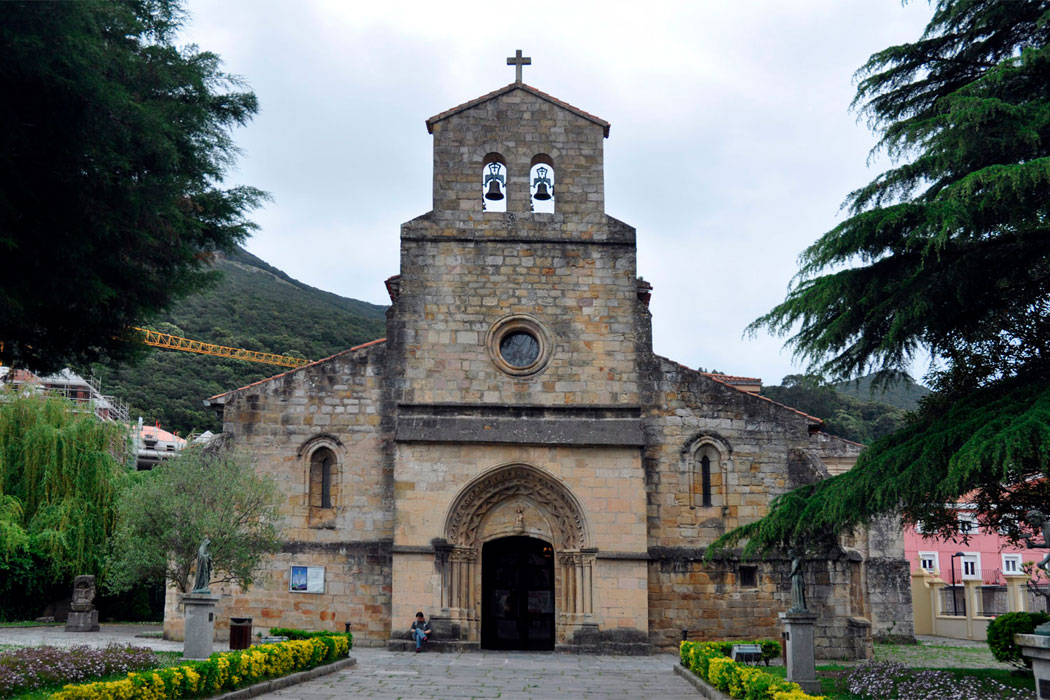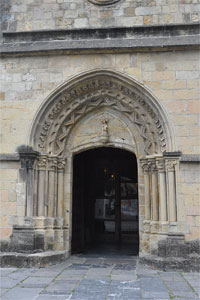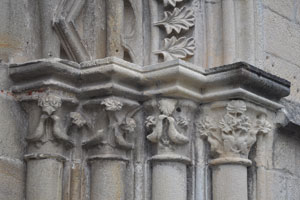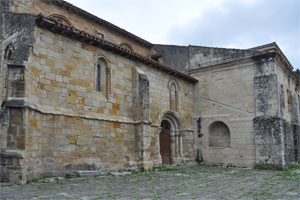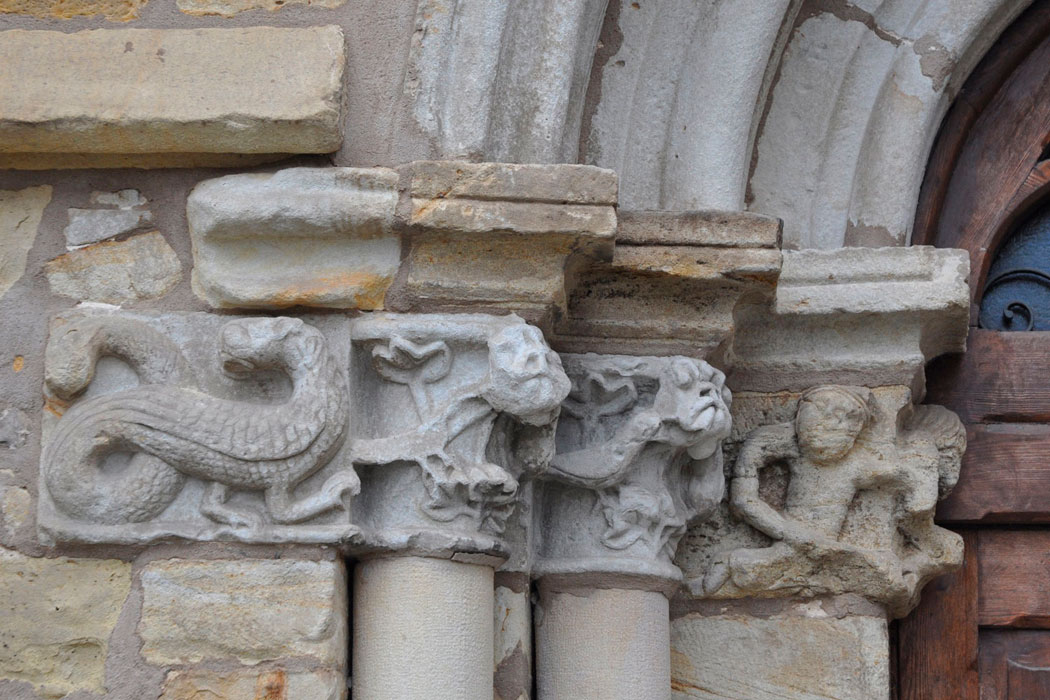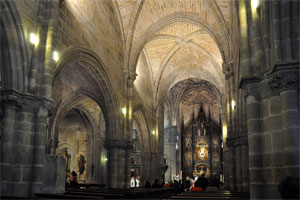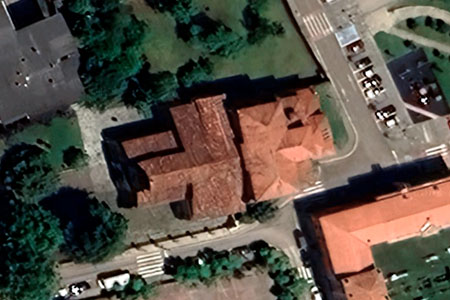It is one of the monasteries founded during the repopulation of the territory, around the 8th-9th centuries, although there are unfounded narratives that place its founding much earlier. In fact, it is not until 836 that we find the first documentary reference to the existence of this house, mentioning its abbot, Zecius. A more reliable document from 863 provides more precise information about the Monastery of Santa María.
There is no firm evidence of the rule followed by that community of monks, but it was probably organized through a monastic pact. In 927, there is a new reference about the house, but after was abandoned and without community for unknown reasons. The monastery bears the name Puerto (Portus), the Roman and medieval place name of what is now Santoña. During the reign of García Sánchez III of Navarre (1035-1054), with the support of that kingdom, the monastery was restored by the monk Paterno. The Navarrese monarch granted it a charter granted (fuero) in 1047, although the authenticity of this document has been questioned.
What is certain is that, thanks to royal protection and its immunity, the house recovered former assets it had lost, including churches and small monasteries. During this period, the monastery was briefly united with Santa María la Real de Nájera. Once this territory was recovered by the Crown of Castile, it enjoyed a period of expansion and prosperity. Alfonso VII of Castile (1126-1157) confirmed the charter granted by García Sánchez III, expanding those possessions.
From 1156, or perhaps earlier, Santa María de Puerto returned to the control of Nájera. By the end of the 12th century and especially at the beginning of the following century, the monastery went through a period of decline, a situation also found in its mother house, Nájera. By the mid-13th century, it had ceased to exist as a monastic house. Today, the church still stands, rebuilt during the Gothic period, although it contains Romanesque elements from its monastic era.
- AMADOR DE LOS RÍOS, Rodrigo (1891) . España, sus monumentos y artes. Vol. 22. Santander. Barcelona: Arte y Letras
- ARAMBURU-ZABALA, Miguel Ángel (2000). La iglesia de Santa María de Puerto en Santoña. Monte Buciero, núm. 5
- BAUDRILLART, Alfred (1938). Dictionnaire d'histoire et de géographie ecclésiastiques. Vol. 10. París: Letouzey et Ané
- GARCÍA GUINEA, Miguel Ángel; dir. (2007). Enciclopedia del Románico en Cantabria. Aguilar de Campoo: Fundación Santa María la Real
- GRIJUELA GIL, Carmen(2016). Los documentos reales y monásticos del cartulario de Santa María del Puerto de Santoña. Altamira, núm. 87
- LINAGE CONDE, Antonio (1973). Los orígenes del monacato benedictino en la Península Ibérica, vol. II. León: C. E. San Isidoro
- SERRANO Y SANZ, Manuel (1918). Cartulario de la iglesia de Santa María del Puerto (Santoña). Boletín de la Real Academia de la Historia, vol. 73
- YEPES, Antonio de (reed. 1960). Crónica General de la Orden de San Benito. Vol. II. Madrid: Atlas
